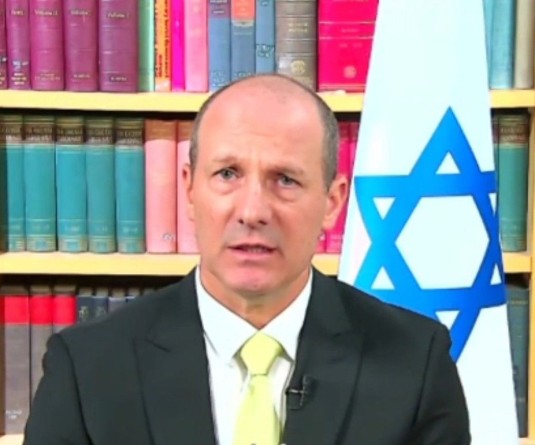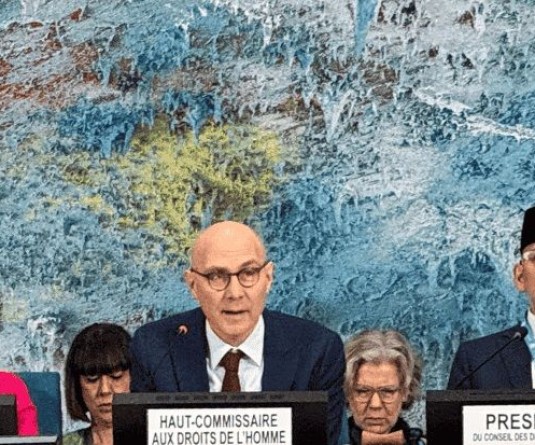Security forces are seen on a truck near destroyed buildings following a massive explosion in Beirut, Lebanon on August 11. (REUTERS Photo)
BEIRUT, August 11 (Reuters): Angry Lebanese said the government's resignation on Monday did not come close to addressing the tragedy of last week's Beirut explosion and demanded the removal of what they see as a corrupt ruling class to blame for the country's woes.
The blast at the Beirut port left a crater more than 100 metres across on dock nine, the French ambassador said on Twitter following a visit to the site by French forensic scientists supporting an investigation into the disaster.
A protest with the slogan "Bury the authorities first" was planned near the port, where highly explosive material stored for years detonated on Aug. 4, killing at least 171 people, injuring 6,000 and leaving hundreds of thousands homeless.
Prime Minister Hassan Diab, announcing his cabinet's resignation, blamed endemic graft for the explosion, the biggest in Beirut's history and which compounded a deep financial crisis that has collapsed the currency, paralysed the banking system and sent prices soaring.
"I said before that corruption is rooted in every juncture of the state but I have discovered that corruption is greater than the state," he said, blaming the political elite for blocking reforms.
Talks with the International Monetary Fund have stalled amid a row between the government, banks and politicians over the scale of vast financial losses.
"It does not end with the government's resignation," said the protest flyer circulating on social media. "There is still (President Michel) Aoun, (Parliament Speaker Nabih) Berri and the entire system."
For many Lebanese, the explosion was the last straw in a protracted crisis over the collapse of the economy, corruption, waste and dysfunctional government.
SECTARIAN SYSTEM
The Beirut port mirrors the sectarian power system in which the same politicians have dominated the country since the 1975-90 civil war. Each faction has its quota of directors at the port, the nation's main trade artery.
"It's a good thing that the government resigned. But we need new blood or it won’t work," silversmith Avedis Anserlian told Reuters in front of his demolished shop.
Diab formed his government in January with the backing of the powerful Iranian-backed Hezbollah group and its allies, more than two months after Saad Hariri, who had enjoyed the backing of the West and Gulf states, quit as premier amid anti-government protests against corruption and mismanagement.
Aoun is required to consult with parliamentary blocs on who should be the next prime minister, and is obliged to designate the candidate with the most support. The presidency has yet to say when official consultations will take place.
Forming a government amid factional rifts has been daunting in the past. Now, with growing public discontent and the crushing financial crisis, it could be difficult to find someone willing to be prime minister.
A week after the blast, residents of Beirut were picking up the pieces as search operations continued for 30 to 40 people still missing.
"Our house is destroyed and we are alone," said Khalil Haddad. "We are trying to fix it the best we can at the moment. Let's see, hopefully there will be aid and, the most important thing: hopefully the truth will be revealed."
World Health Organisation spokesman Tarik Jarasevic said eight emergency international medical teams were on the ground to support overwhelmed health facilities, under strain even before the blast due to the financial crisis and a surge in COVID-19 infections.
Officials have said the blast could have caused losses of $15 billion, a bill Lebanon cannot pay.
Ihsan Mokdad, a contractor, surveyed a gutted building in Gemmayze, a district a few hundreds metres from the port.
"As the prime minister said, the corruption is bigger than the state. They're all a bunch of crooks. I didn't see one MP visit this area. MPs should have come here in large numbers to raise morale," he said.






